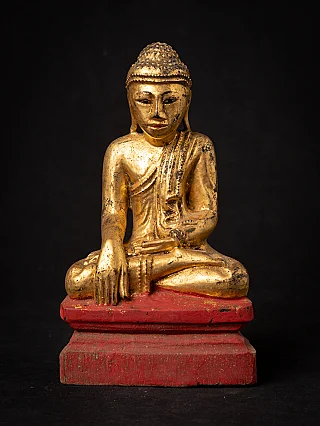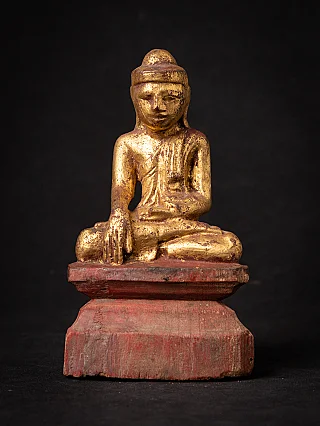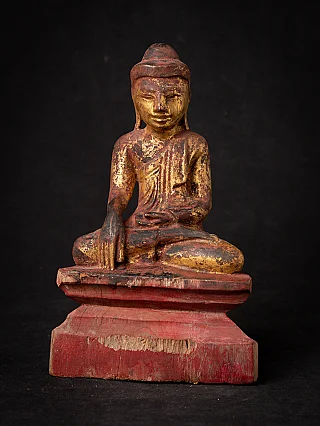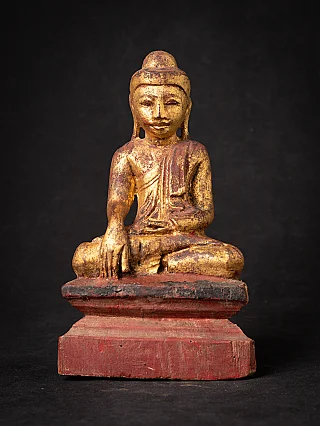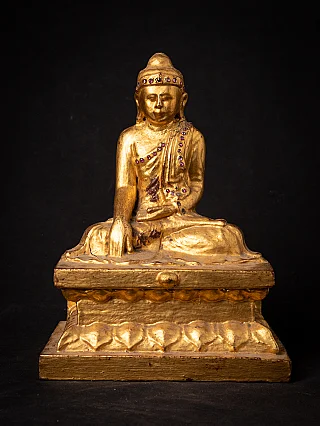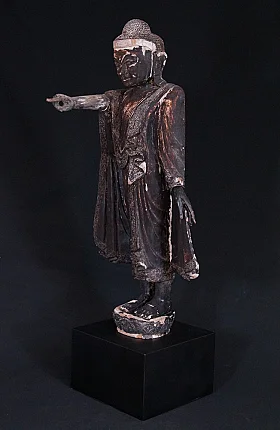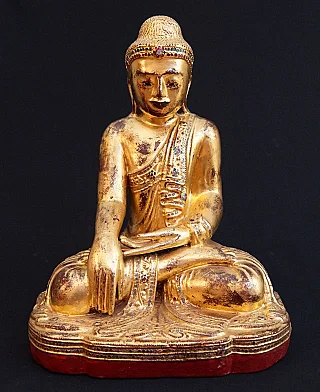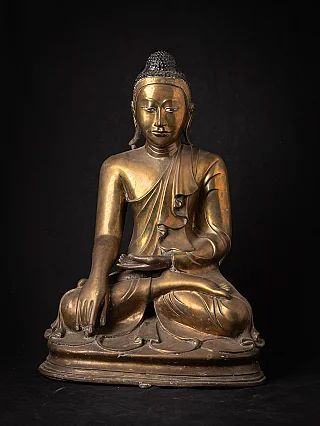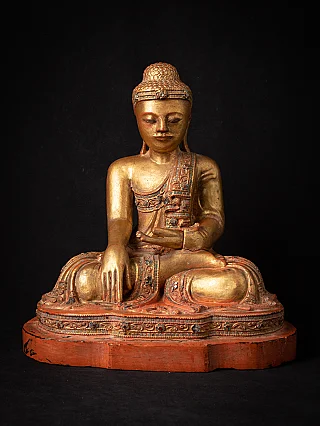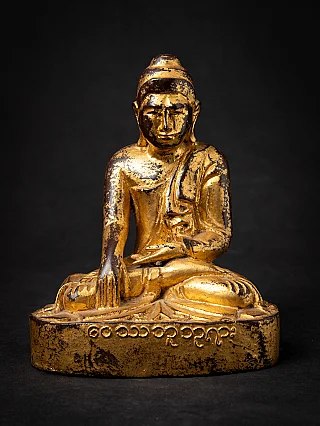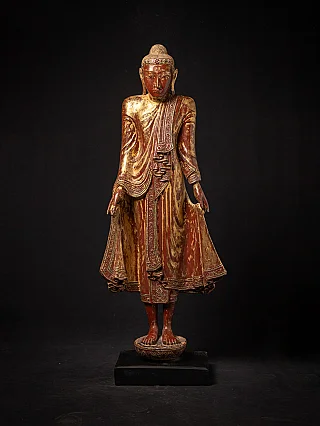Mandalay period: 1853 - 1948

See our Mandalay Buddha statues
Mandalay was considered the center of the Buddhist universe in Myanmar. King Mindon moved the capital from Amarapura to this new site and called it the city of Mandalay. Tradition maintains that Gautama Buddha visited the sacred peak of Mandalay Hill with his disciple Ananda and proclaimed that on the 2400th anniversary of his death, a metropolis of Buddhist learning would be founded on the plain below the hill. The political center of this new city had the perfect geometrical form of a Buddhist Mandala, for which the city was named Mandalay.
It ended when the Burmese gained its independence from the British.
Buddha statues from the Mandalay period

The youthful, sweet-faced image of the Buddha wearing a robe elaborately folded, edged, and decorated often with inset mirror glass, has attained great popularity and become known as the" Mandalay Buddha". For many, it epitomized the Burmese representation of the Buddha. Mandalay Buddha statues often have a broad band across the forehead. The hair hugs the head in tight curls and covers a wide, prominent ushnisha. There is no lotus finial above. The images are frequently seated in the bhumisparsa mudra, and the left is lying on the lap. The uttarasanga is worn in the open mode, and the sanghati is folded decoratively on the left shoulder. Wood, alabaster, and bronze have been the favored materials. Many Buddha statues are lacquered and gilded, including the face and body. Most standing Buddha images wear the uttarasanga in closed mode, covering the arms and chest and holding them at each side of the lower body with downward-stretched hands. Below, at its lower center, appears the antaravasaka. The sanghati flows in multitudinous folds from the left shoulder. In his right hand, the Buddha holds the medicinal myrobalan fruit.
Historical Background of the Mandalay Period
From 1853 to 1948, it marked a significant era in Myanmar's history, particularly with Buddhism and artistic expression. During this time, King Mindon made Mandalay the capital, a decision that carried deep religious and cultural symbolism. The city's name, derived from the Buddhist Mandala, reflected its spiritual significance as a center of Buddhist learning and practice.
Artistic Details of Mandalay Buddha Statues
The artistic style of Mandalay Buddha statues is distinctive and revered for its intricate details and symbolism. The youthful and serene depiction of the Buddha, often adorned with elaborate robes and decorative elements like inset mirror glass, captures the essence of Burmese artistry. The Bhumisparsa mudra, commonly seen in Mandalay Buddha statues, symbolizes the Buddha's enlightenment and connection to the earth. Materials such as wood, alabaster, and bronze were expertly crafted to create these masterful representations of the Buddha's teachings and compassion.
Influence and Legacy of Mandalay Buddha Statues
The influence of Mandalay Buddha statues extends beyond their artistic beauty. They have played a significant role in shaping Burmese religious practices and cultural identity. Even today, Mandalay Buddha statues are revered for their spiritual depth and serve as reminders of the Buddha's timeless teachings. Their legacy is a testament to the craftsmanship and devotion of Myanmar's artisans and the enduring impact of Buddhist philosophy.
Share this page



























